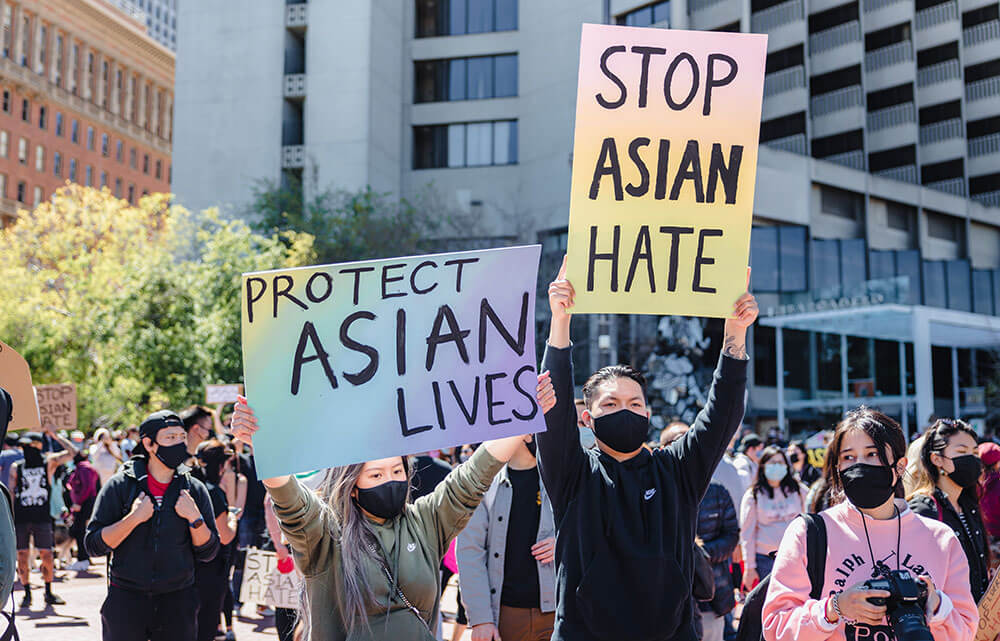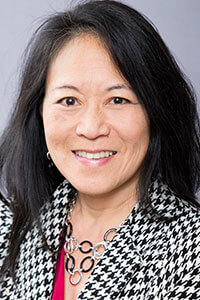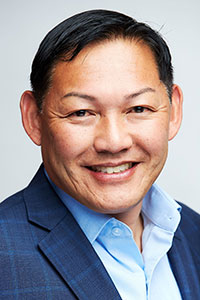
Rallies supporting Asian Americans have been held around the country, joined by other communities taking a stand against discrimination and hate. (Robinson Greig at Unsplash)
Recent hate crimes against the Asian community are the latest in a long history of Asian American racism in the United States, dating back to the Chinese Massacre in 1871, in which more than a dozen Chinese men and boys in Los Angeles, representing 10 percent of the city’s Chinese-immigrant population, were murdered. Three decades later, when the first plague epidemic in the United States took place in the early 1900s in San Francisco, its Chinatown neighborhood was segregated from the rest of the city because the first victim was a Chinese immigrant living there. Confining Chinese residents to the neighborhood made them vulnerable to contracting the disease. Four decades after that, in the wake of the Pearl Harbor bombing in 1942, more than 120,000 people of Japanese descent — many of whom were American citizens — were imprisoned at Japanese internment camps.
Fast forward to 2020, when hate crimes against Asian Americans rose 150 percent from 2019, according to the Center for the Study of Hate and Extremism’s analysis of police department statistics. Based on timing alone, that’s likely because the COVID-19 virus was first reported in China — a fact that some politicians have weaponized throughout the pandemic. Major cities have experienced a surge in anti-Asian hate crimes: In New York, such crimes rose from three incidents to 28 in the one-year span; from seven to 15 in Los Angeles; and from six to 14 in Boston.
The Stop AAPI Hate reporting center, a national coalition founded in March 2020 to track and respond to incidents of hate, violence, harassment, discrimination, shunning, and child bullying against Asian Americans and Pacific Islanders in the United States, found that acts that did not constitute as crimes also were on the rise.

Cyndy Yu-Robinson
Nearly 3,800 hate incidents were reported to the center between March 2020 and February 2021, which “represent only a fraction of the number of hate incidents that actually occur, but it does show how vulnerable Asian Americans are to discrimination, and the types of discrimination they face,” the organization said in its 2020-2021 National Report. California and New York, according to the report, were hotspots for these incidents.
This poses a serious concern for Cyndy Yu-Robinson, executive director of the National Association of Asian American Professionals (NAAAP) and her organization’s 5,000 members — especially when it comes to NAAAP events, which are frequently held in major cities.
“We tend to take our conferences to where our chapters are. NAAAP has 26 chapters and most of those Asians [live] on the two coasts,” Yu-Robinson told Convene. “I’m not going to speak for everybody, but I keep hearing that my friends in Chinatown, New York, and Chinatown, Boston — they face a very different reality than I do in suburban Raleigh [North Carolina]. I drive everywhere. I don’t have to get on a train. I don’t have to get on a bus. My interactions with people of different backgrounds are really limited right now because of the pandemic. Now that people are getting vaccinated, they want to get back out … but there has been a 150-percent increase in reported violence against Asians since March of last year.”
‘A Model Minority’
Gary Murakami, GTP, GLP, CMP, CMM, DES, director of global sales for MGM Resorts International and current trustee on the PCMA Foundation Board, echoed Yu-Robinson’s worries about increasing hate incidents in major destinations. Murakami, who lives in California, said it’s alarming as an Asian American “to live in a community where you feel safe — or maybe falsely felt safe — and seeing all these incidents happening … and being fearful of, for example, elderly parents going out,” he said. As he thinks back over his 20-year career “in the hospitality subsector,” he said he had “brushed off” verbal harassment or discriminatory comments he experienced during his travels around the country, “because I felt the safety net of coming back to my own city. I thought ‘Oh, that was just in the other city I traveled to,’ because that was where I was much more conscious of it. … I don’t want to diminish or denigrate any other destination I’ve been to where I’ve received this type of harassment, but it makes you think twice about the travel that we do.”
For this reason, Murakami told Convene that he has been grappling with how his own industry can help support the AAPI community, a group that has often been overlooked in discussions about diversity, equity, and inclusion. “In many ways, we’ve been referred to as the silent ‘model minority.’ That’s the stereotype that is presented,” he said. “We get lost in the conversation.”

Gary Murakami
Murakami believes change can begin with Asian Americans in the industry “making sure our voices are louder and we provide feedback,” he said. “We need to amplify our voice and our feelings and our thoughts, which is very counterintuitive to our community traditionally. Culturally, that’s not something that many of us in the Asian community are comfortable with.”
Yu-Robinson also said that that cultural tendency, in addition to their relatively small numbers in the population, have made many Asian Americans “feel very invisible in the workplace and in the community.” But when six Asian women were killed in shootings at Atlanta-area spas in March, Yu-Robinson said it was a turning point for the Asian community to become more outspoken.
“We have to build coalitions with non-Asians,” she said. “We have to be more vocal. We have to take those risks.” When it comes to destinations, Yu-Robinson said there are many ways CVBs and DMOs can be supportive allies. “We want to see that there are safe places for people to go,” she said, with “places like Chinatown” looking well-kept, well-lit, and as inviting as other neighborhoods.
Destinations can also support the AAPI community by promoting Asian-owned businesses, Yu-Robinson said. “Put Asian stores on your ‘places to visit’ lists, and make sure we feel welcomed in your city, because staff members” — as well as languages spoken, written, and translated, she said — “all reflect that your destination recognizes us, and recognizes that Asians are pretty powerful consumers.”
‘Educating Our Attendees and Organizers’
Murakami said that event organizers can also help Asian Americans, in addition to other racial minorities, feel safe by viewing destinations from the lens of those individuals. “I don’t advocate not choosing destinations or venues solely based on their policies, but it’s something to be aware of,” Murakami said. He added that it is crucial to communicate to the host destination that an organization’s event policy does not tolerate any discrimination, as well as that the destination “understands what is happening in current events,” he said.
When a particular group feels like outsiders or as though they’re being discriminated against — that’s a “level of discomfort” that most non-minority meeting professionals are likely not familiar with, Murakami said. But, he added, it is deeply important to feel empathy with these groups when selecting a destination that feels safe and welcoming to attendees.
RELATED: 5 Ways Bystanders Can Respond to Harassment
“If we are going to spread the awareness, it’s about really educating our attendees and organizers a little bit more about what is happening as it relates to the ongoing hate against AAPI people,” he said, “and then establishing non-discriminatory policies within their meetings and events and ensuring inclusive practices are top-of-mind. When those policies are written, it’s easy to say ‘Yeah, we don’t stand for it.’ It’s something different when you emphasize it and make it a focal point.”
Murakami said that he has participated in local rallies supporting the AAPI community and has been inspired by how different communities came together at these events to support Asian Americans — an approach he feels the events industry should take.
“That, to me, is powerful — when communities come together. It’s not like one community doing it alone, and this is when allies become very important to the conversation,” he said. “It’s about making space for all communities, and how do these communities collaborate together? If we want to change people’s hearts and minds, we need to use our industry as a platform for change.”
Casey Gale is associate editor at Convene.
